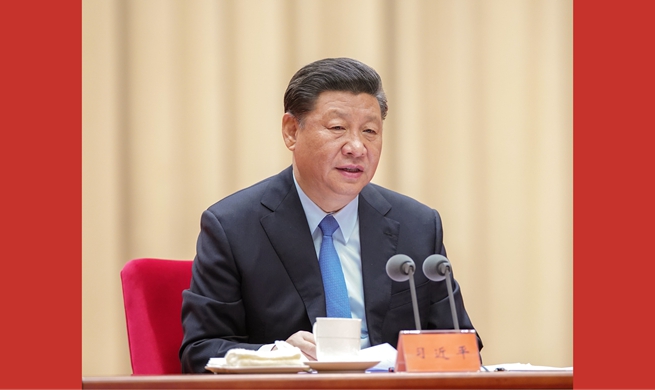by Raimundo Urrechaga
HAVANA, May 31 (Xinhua) -- Cuban officials, European Union (EU) diplomats and representatives of European firms on Friday denounced and rejected U.S. recent activation of Title III of the Helms-Burton Act.
The act allows U.S. citizens to establish lawsuits against international companies operating in Cuba on nationalized or expropriated properties after 1959.
In a meeting of Cuban government officials, EU diplomatic corps and representatives of European companies operating in the Carribean nation, Carlos Fernandez de Cossio, director of U.S. affairs of Cuba's Foreign Ministry, said Washington's recent measures against Cuba seek to limit foreign investment in the island country.
It is also directed against those who trade with the Caribbean nation, he said.
The EU Ambassador to Cuba Alberto Navarro said the EU's position is "firm" in rejecting the U.S. move and its member states have "antidote laws" in case any U.S. court imposes fines on them.
"What this legislation seeks to create is confusion, discourage investments and that is something the EU doesn't share," he added.
He noted that European firms have been told not to collaborate with U.S. judges and if there are any economic sanctions, they can ask the European Court of Justice to compensate them for financial damages.
However, Fernandez de Cossio said the claims and lawsuits "which have been presented so far have not been directed against foreign companies in Cuba but against commercial activity that is not necessarily capital investment."
Enabling this section of the 1996 Helms-Burton Act aims to further strengthen the nearly six-decade old economic embargo, he said, adding that it also seeks to block any future improvement of bilateral ties by only allowing U.S. Congress to totally lift the embargo.
Meanwhile, Xulio Fontecha, president of the Association of Spanish Entrepreneurs in Cuba (AEEC), enumerated a series of intimidating practices by the United States towards the European business community based in the Caribbean nation.
Among them are warning letters sent by Cuban organizations in the United States to some members of the AECC about the implications of doing business in the island country, the closing of bank accounts of several firms and the denial by courier companies to send documents to Havana.
"It's a policy of hostility towards us. Some organizations have asked us to stop supplying certain products and equipment that U.S. companies are beginning to distribute in Cuba," he added.
U.S.-Cuban relations have plummeted since Trump took office, dramatically rolling back the detente initiated by his predecessor Barack Obama.













